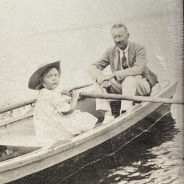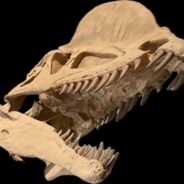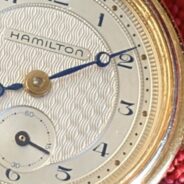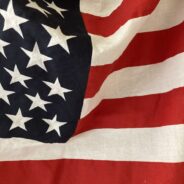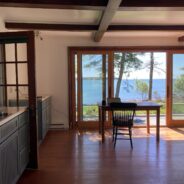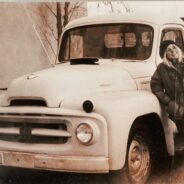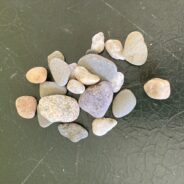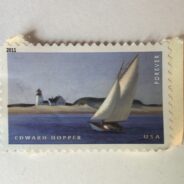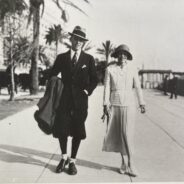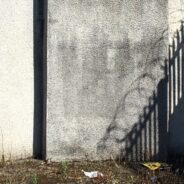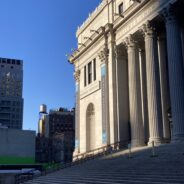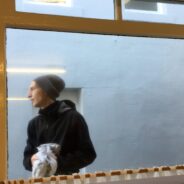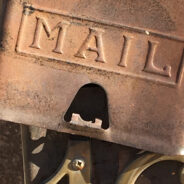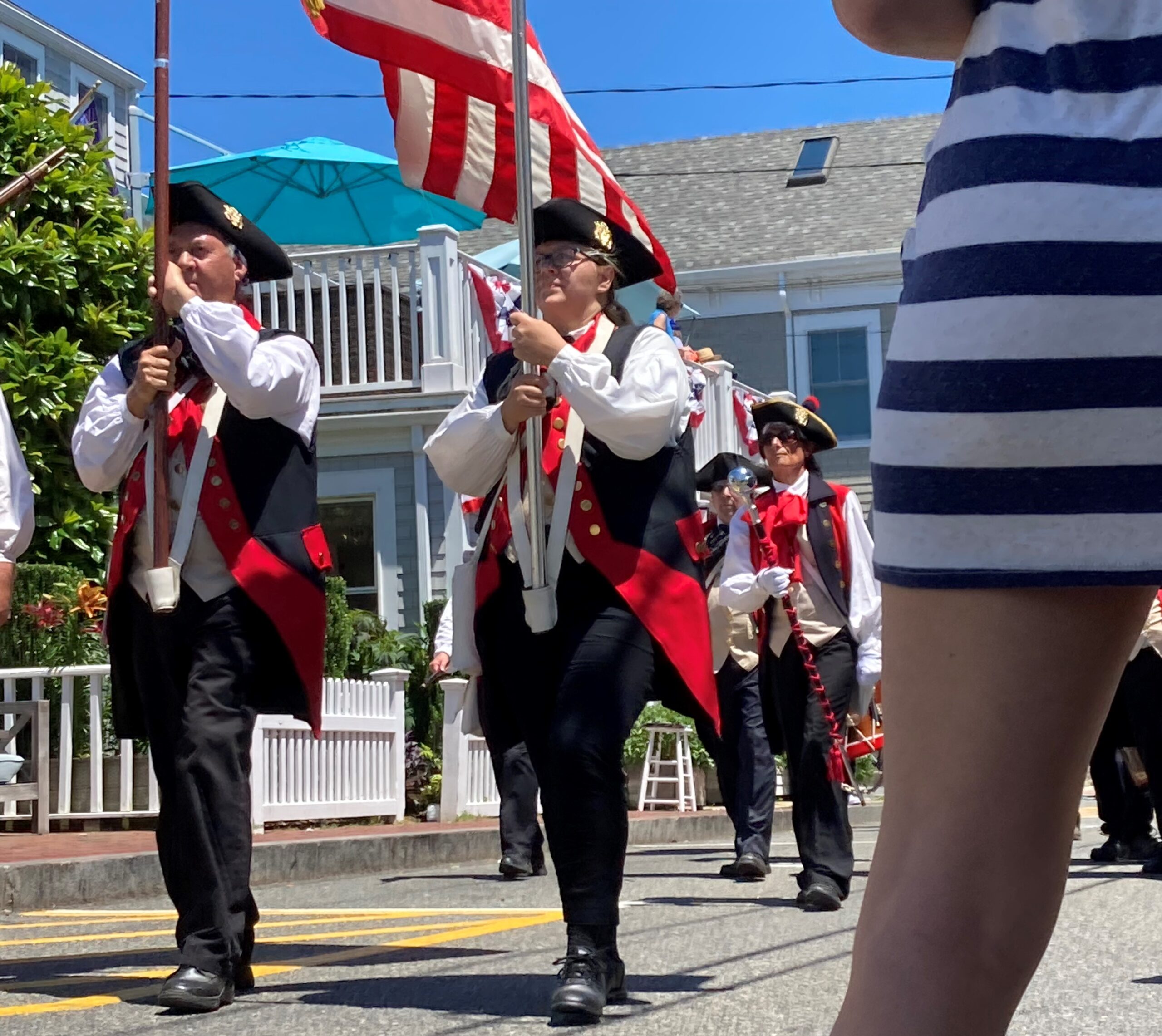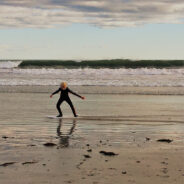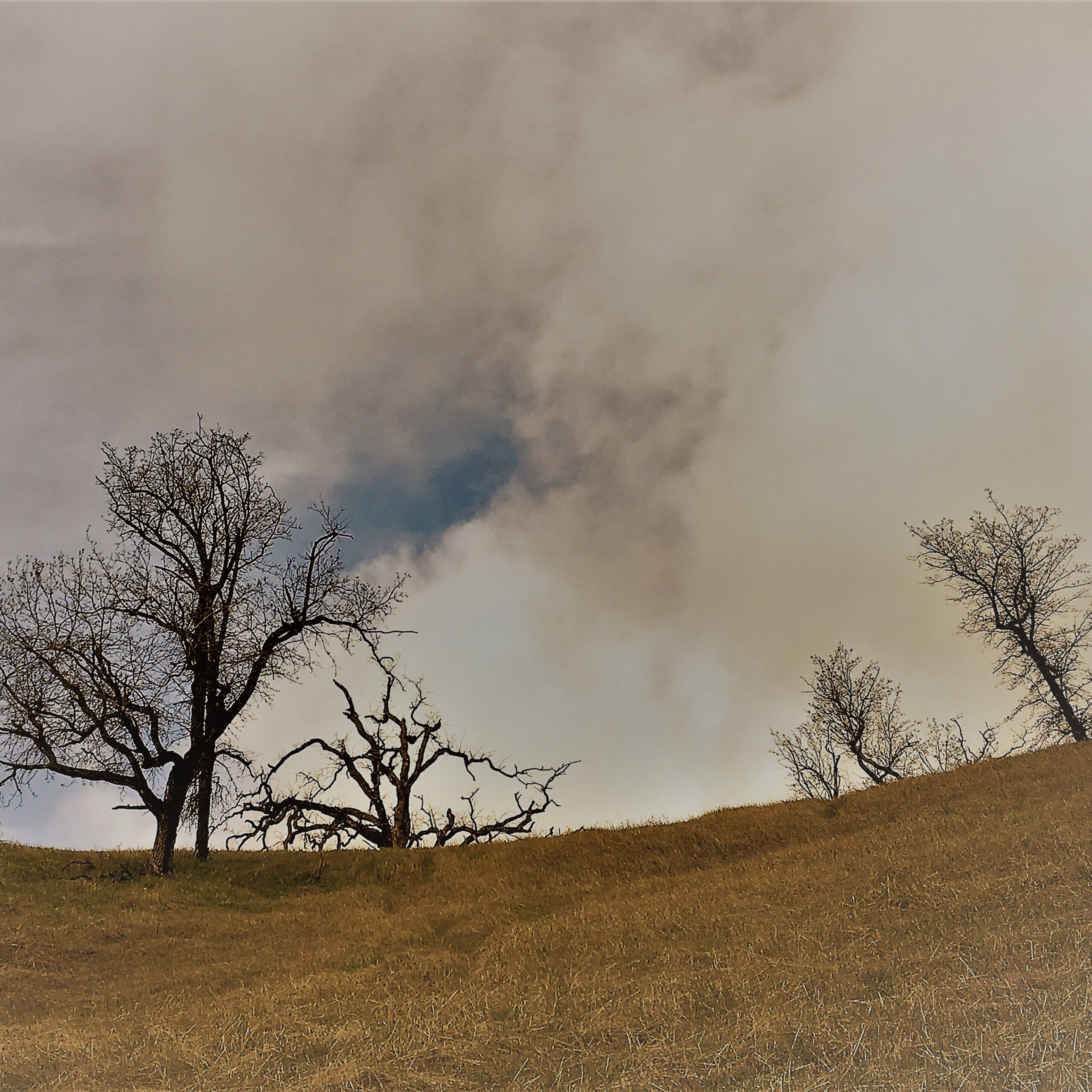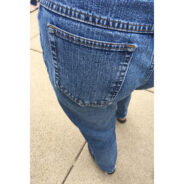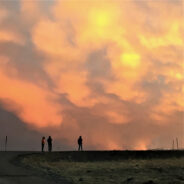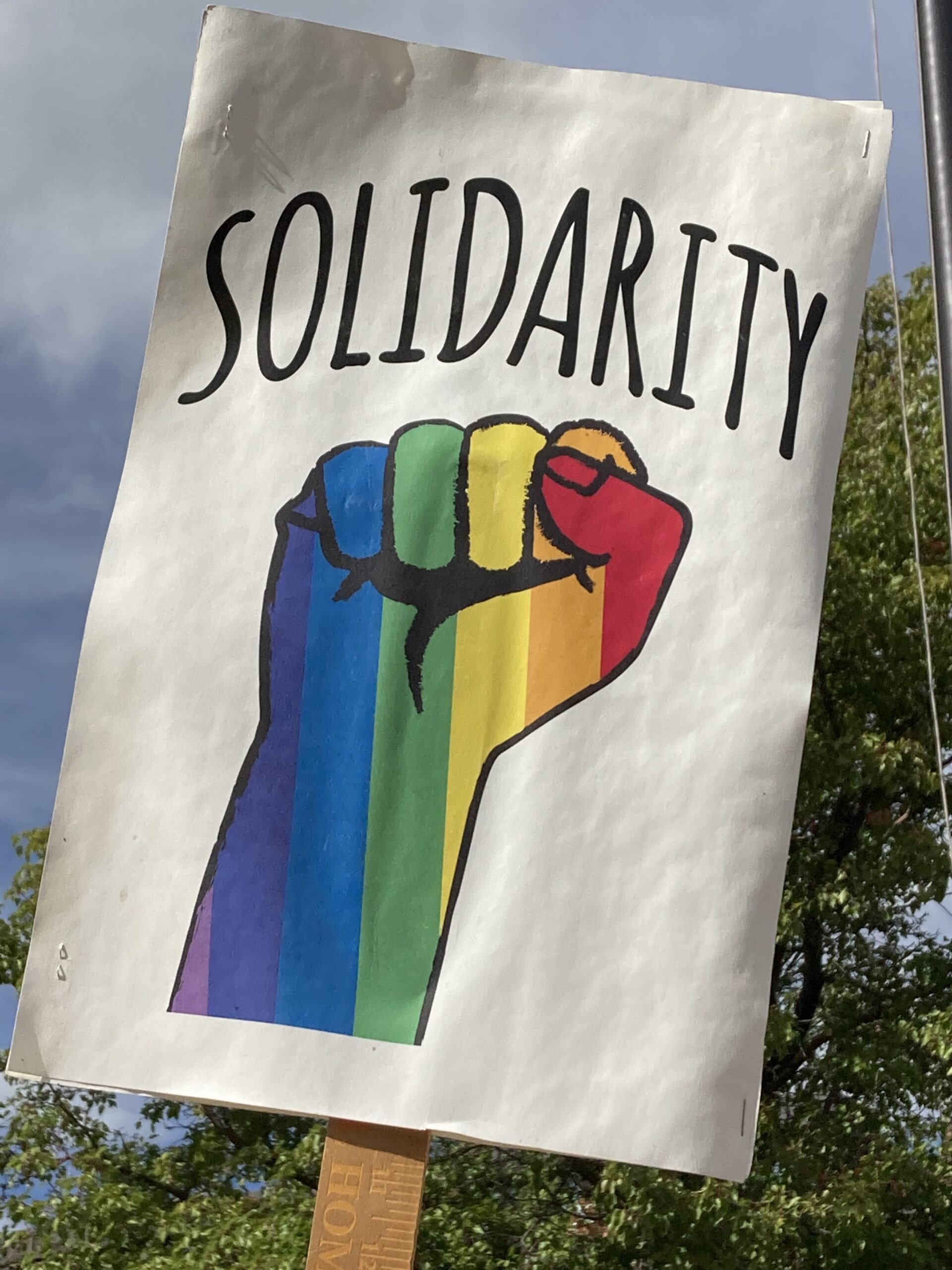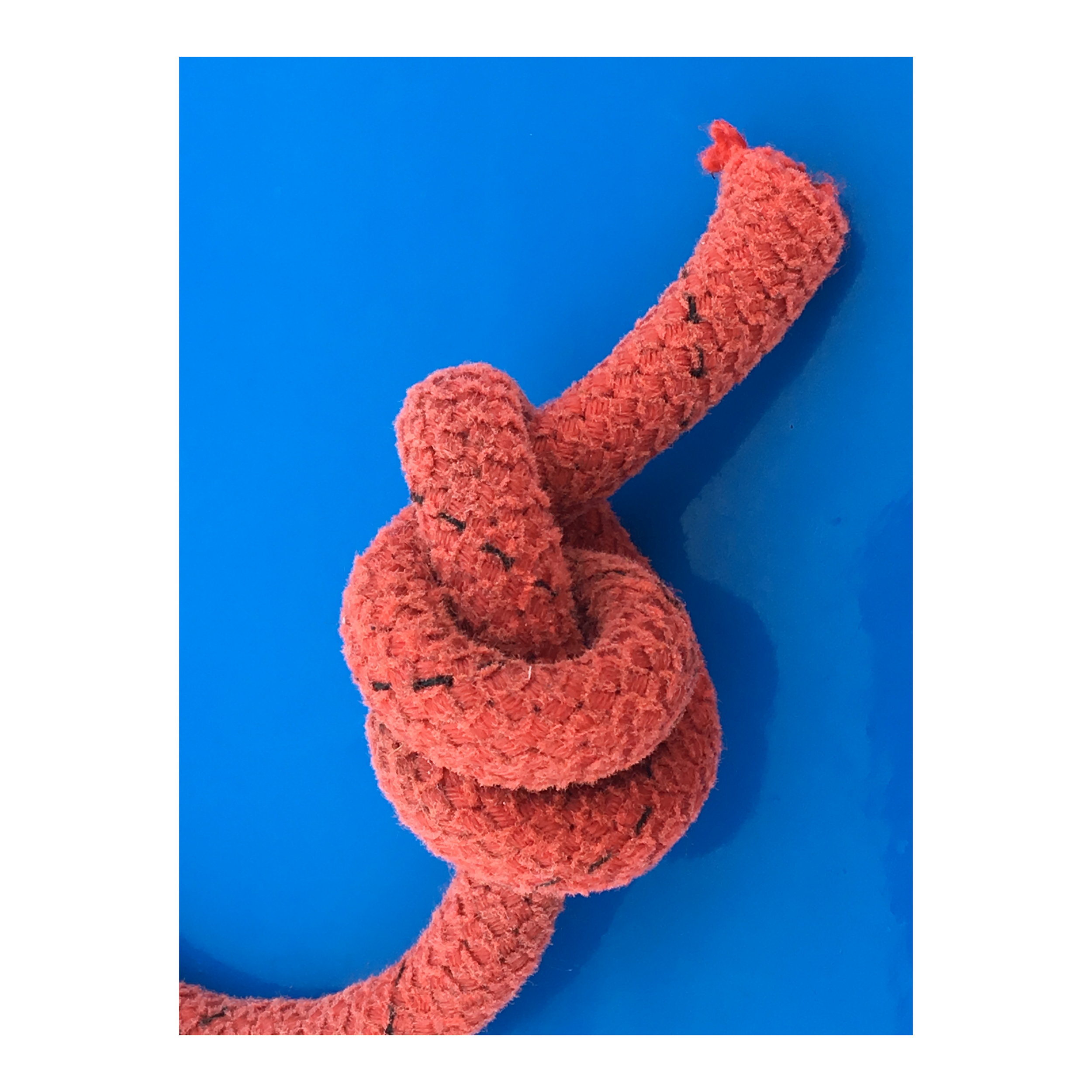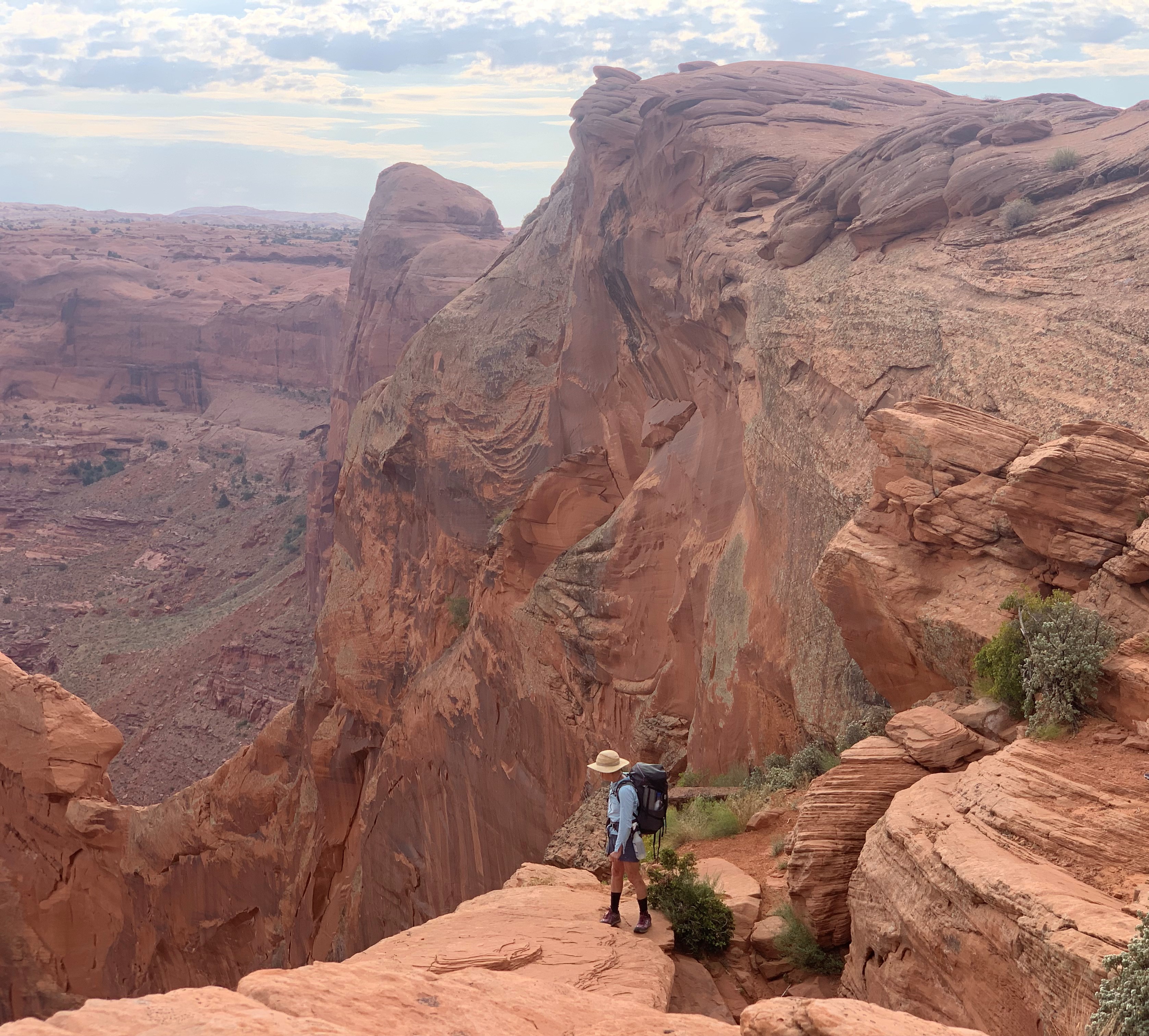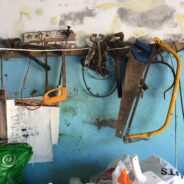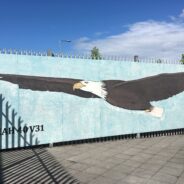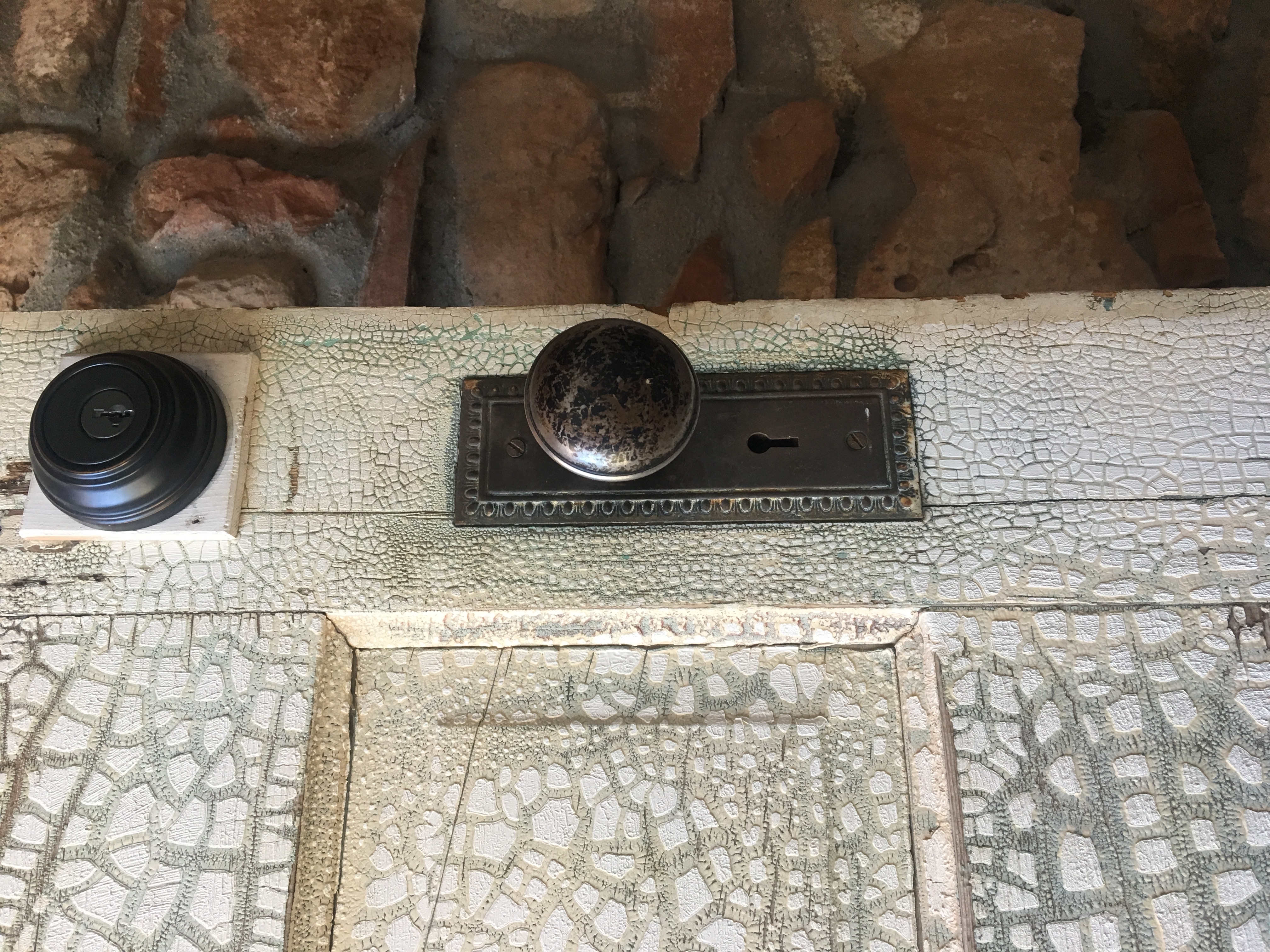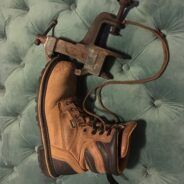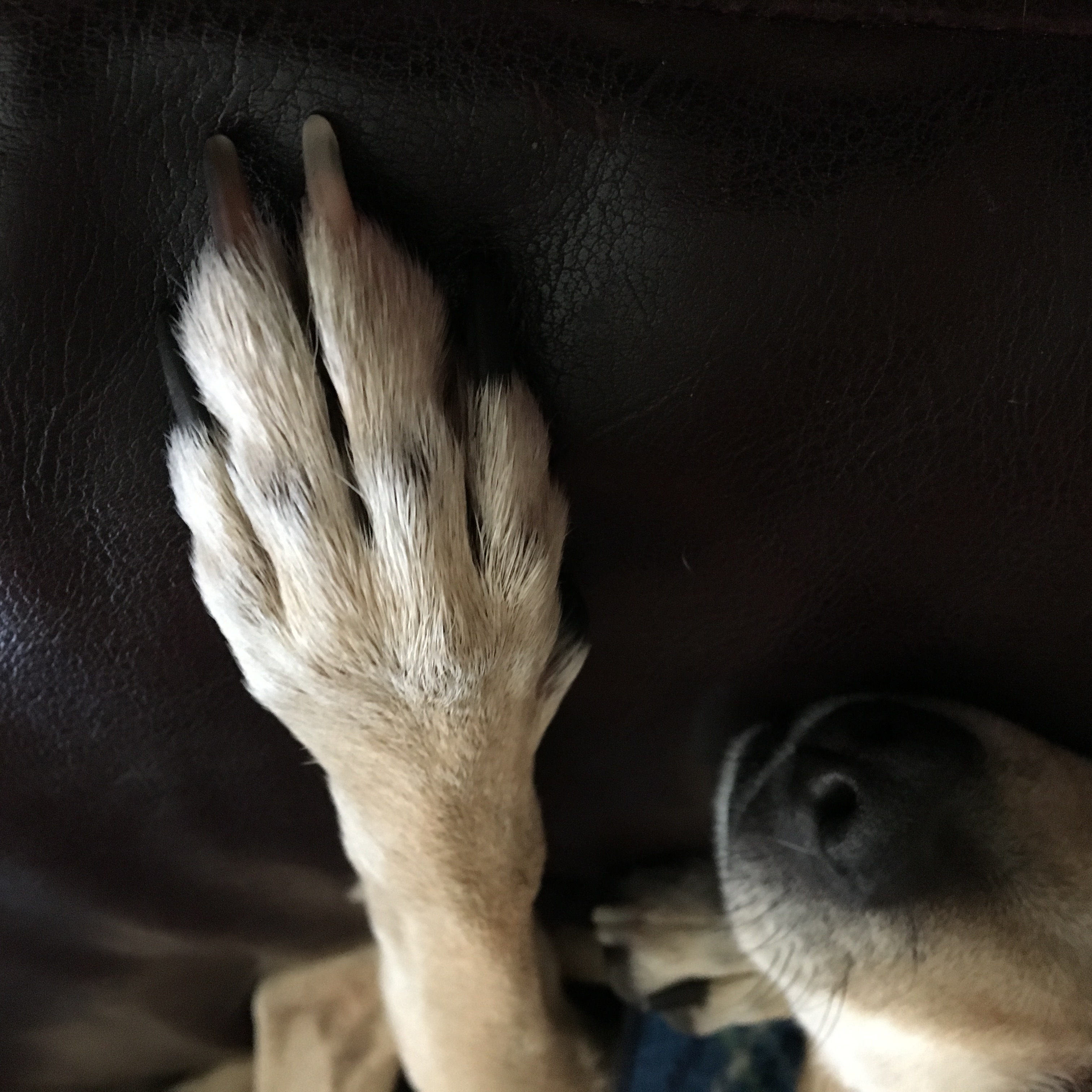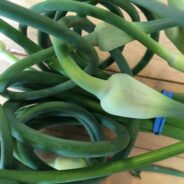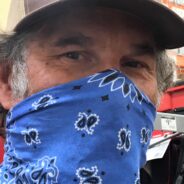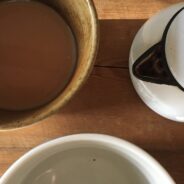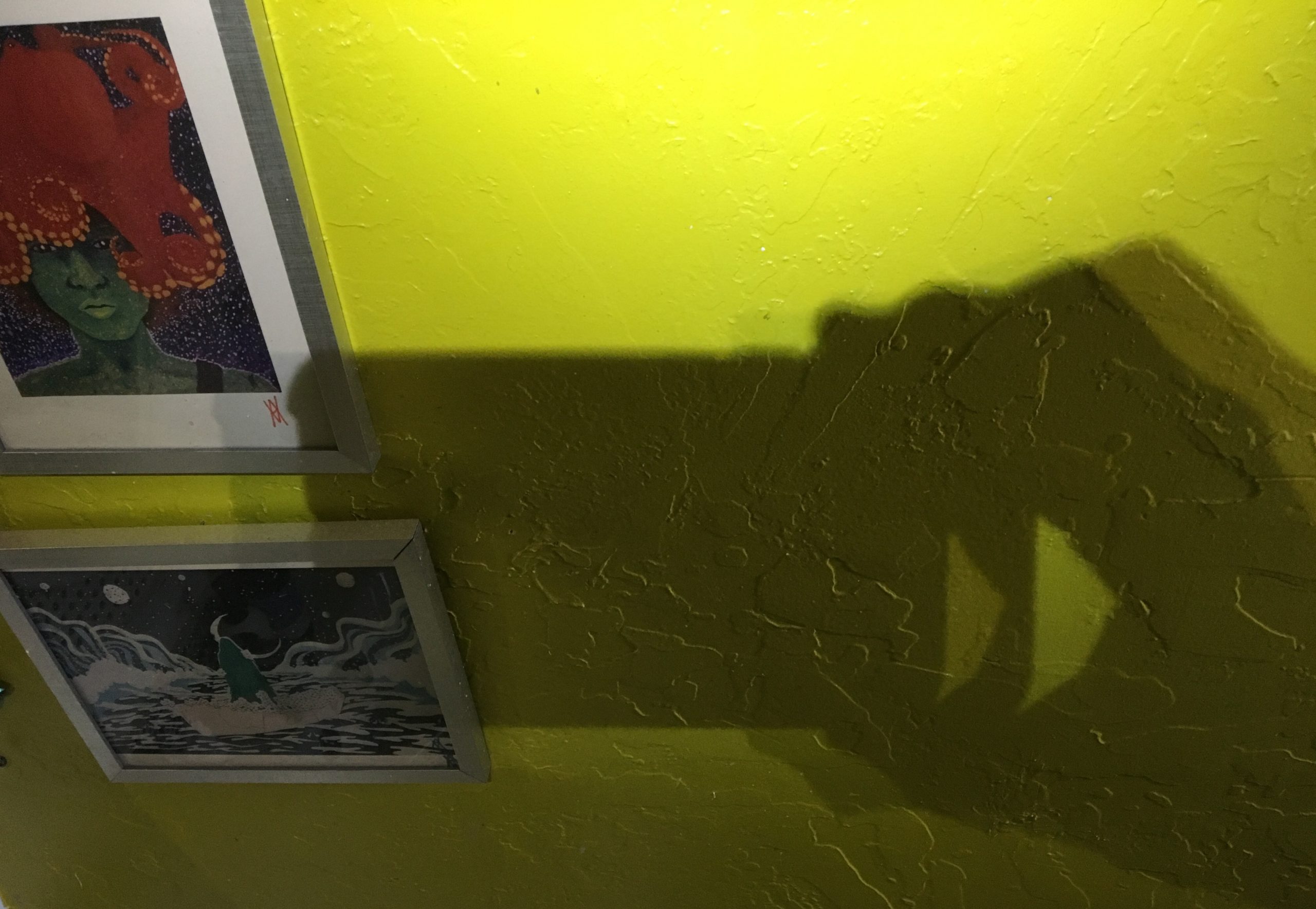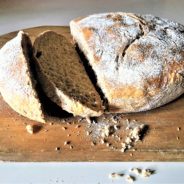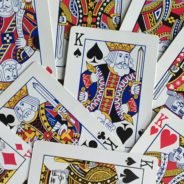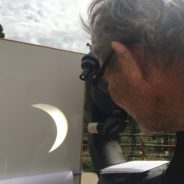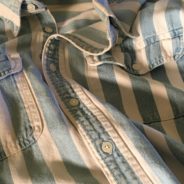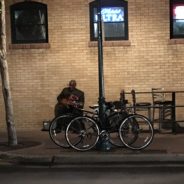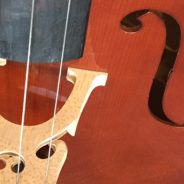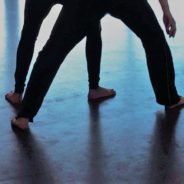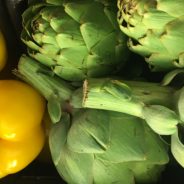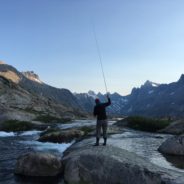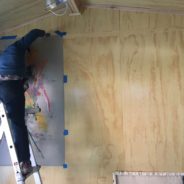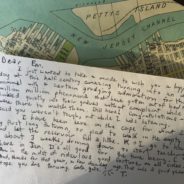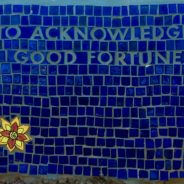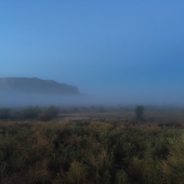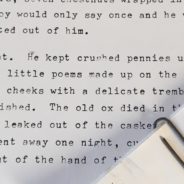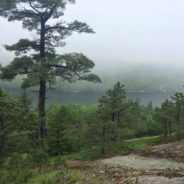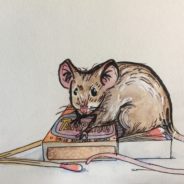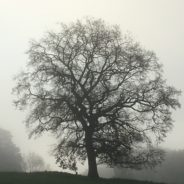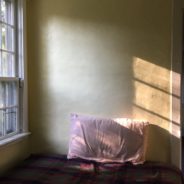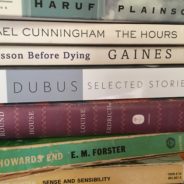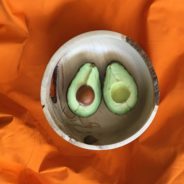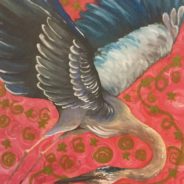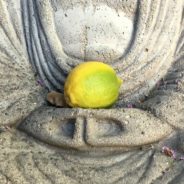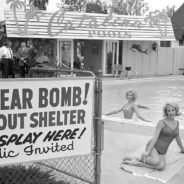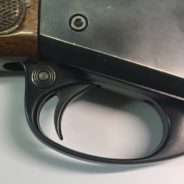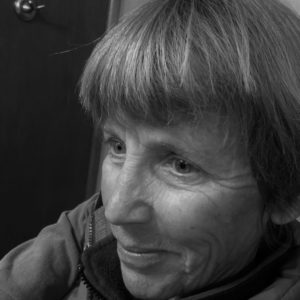The Shoes of a Citizen; Creating connections in a divisive time
A note from the writer: This piece first ran in these pages in October 2020. My desire to run it again follows a conversation with my friend, Lynne, who wondered why we were seeing so little in print about the ordinary and contributing lives of the people we are presently deporting. Citizenship and legal status can be a very long road, and those who are on that road at this moment are moving as quickly as they can through a quagmire of bureaucracy. At the same time, they are working multiple jobs, raising families, paying taxes, going to...
read moreAh, Boats
At the first sign of spring in my neighborhood, from the top of the street to the bottom, out come the boats. They sit on trailers or atop Subarus and SUVs. They lean against fences and languish in driveways. The street itself becomes an asphalt river, a runway for a beauty contest of boats. Brad, up the hill, is heading to the San Juan with a load of new Doryaks. He came up with the hybrid of dory and SportYak, chubby little wooden wonders, and people like them and ask for more. So he builds more and out they ride on their maiden voyage...
read moreThe Age of Brawn
Ever since we discovered the existence of dinosaurs, there’s been a subset of the population, and not just children, whose fascination with them and admiration for them should have warned us, decades ago, of the particular future we find ourselves in now. Brawn is a word not often used in the new vocabulary of our time, yet it is more and more at the root of our behavior. We have many words for thinkers: brainy, genius, intellectual, smarty pants, bright, precocious to name a few, and in our current social climate they sound like insults....
read moreThe Right Moment
This is the story of a deer, a man, a woman, a tree and two funerals. It takes place in Georgia, down near the Florida line, on a hunting plantation that belongs to my father’s brother. It’s no Tara and the house on the land is no Twelve Oaks. It’s a modern house, simple and practical and beautiful in its practicality. It sits on a rise with a view of longleaf pine forest. Below are the kennels, the barns and the plantation manager’s house made of white brick. At the time of this story Bull was the manager. His given name was something else...
read moreMy Imperfect America; Of losers, winners, and washing machines
If the ‘50s was not a shining moment in human history, the decade at least landed us with an abundance of game shows. Truth or Consequences, The Price Is Right, Queen for a Day, and a few years later, Let’s Make a Deal. These were the four that played at our house, and I considered it daytime TV at its finest. How I became a game show aficionado puzzled me for years. Why wasn’t I in school or playing with my friends? These shows aired in the morning or early afternoon yet somehow I can picture myself, a little kid lounging on a rug the color...
read moreMess
The story goes that when my father’s parents divorced when he was eight, the reason given was not infidelity, moral lassitude, or drunkenness, but messiness. Theirs was an example of the inability of two people to share a life when one was messy and one was neat. There are many apocryphal stories in my family and this may be one of them, but I suspect there’s truth at its core. I remember my grandfather as a buttoned-up man whose passion was fishing. He tied his own flies—an incredibly exacting art—and was a beautiful skier. If you could meet...
read moreWay Stations Remembered; One traveler’s tollbooth fandom
Every summer I make a pilgrimage to New England where I did some of my growing up. In a rented car I drive the familiar roads of Massachusetts and Maine, reacquainting myself with humidity and the color green. The farther north I go the fewer people there are, and along the coast the air cools and becomes salty. I don’t pull off the highway to find a bowl of fish chowder or a lobster roll, though I wish I were the kind of person that did that even just once. One thing I’ve learned about travel is it puts you right up against who you are,...
read moreBreakfast with the Captain
When I was a chubby five-year-old in puffed sleeves and shiny red shoes, and people asked me what I wanted to be when I grew up, I had one answer: I want to be famous. I had learned not to say I wanted to be a fireman. Everyone laughed at that. But I couldn’t say what people expected, a teacher or a nurse. I didn’t want to be a teacher or a nurse. My first grade teacher scolded me for coloring outside the lines, and coloring a cow red, so being an artist was out. Sea captain brought the same reaction as fireman, and really after that, what...
read moreA Portable Notion; Meditations on home
Here, two big winter storms brought a few trees down. The grass is lush and the ferns my mother planted have grown in and spread along the new drainage ditch. The place looks cared for, as my parents used to care for it. The driveway has a fresh load of gravel and the house a new coat of paint. I got here last night and even in the dark I could sense the changes wrought by time and weather and us, my sisters and brothers and me, who have a long relationship with this particular three acres. This is our home spot on the long coast of Maine,...
read moreA Wild Affection; In praise of the pickups
If you’ve never listened to the Hot Country Knights singing “Pick Her Up,” you may not be interested in reading any further because this Letter From Home is basically a paean to pickup trucks, including the lyrics they inspire. An example of this brilliance is: “If you wanna do right on a Saturday night/This is all you’ve gotta do/…Pick her up in a pickup truck.” And: “Yeah, buddy, she ain’t got no use for a BMW/Or wine from a hundred dollar bottle/She’d rather bounce around in the outskirts of town/Shotgunnin’ in a muddy Silverado.” To watch...
read moreAdrift in the Floating City; A traveler considers home
Ever since reading Alfred Kazin’s A Walker in the City, I’ve approached the art of the passeggiata with a new sense of awe. Far from being a simple feat of forward movement, a stroll is an act of discovery, a gourmet meal of the senses. We prowl and sniff and stop and listen and sniff again, just like the four-footers we know. Sometimes we’re purposeful, ticking off the miles from one place to another. Sometimes we’re dreamy, stopping at the pasticceria for a sfogliatella, or pausing under an open window on a narrow street to eavesdrop on the...
read moreThe Trials of Now
When I was a kid and admittedly a little on the self-centered side, I thought I would someday write an advice column for my hometown newspaper, the New York Times. I decided I would call it Dear Me, ME being my initials. The cleverness of that faded over time, as did the ambition to give anyone anywhere advice. But now I’m back at it, though you won’t find pearls of wisdom here, only a few pebbles I’ve carried in my pocket over the years. Some of them came home with me from the river, others I picked up off the road, and yet others were good...
read moreTales of the Inverted Jenny and Other Philatelic Surprises
As a kid, nothing pleased me more than to hear a grownup cut loose with a volley of curse words. I was an East Coast city girl; we didn’t say “cussing.” We said “swearing” but that was confusing because sometimes you were meant to swear, to promise you weren’t the one who made the crank calls to the elderly neighbor or clogged the toilet with paper towels. The use of naughty and forbidden words was music to my ears, a whole string of them a symphony. I didn’t have to understand what was said, it was the way in which it was said that intrigued...
read moreThe Future Has an Electric heart; A cautionary tale
Good morning from the parking lot behind Darling’s Auto in Augusta, Maine where I’ve spent the night in fetal position on the back seat of my electric vehicle, waiting the required seven hours for it to charge. Oh, it’s a wonder, this new form of transportation. Drive awhile, wait awhile; drive and charge, drive and charge. What’s time to a weary traveler? A parking lot can feel like home! Yes, this could have been my fate but for a sliver of luck. In another scenario, I and my Chevy Bolt might have arrived at our destination on the back of a...
read moreBrookie; A story for the season
My grandfather was a slender man with a high forehead and immaculate hands. He was a fly fisherman, and the reason we didn’t see him often was because he fished all over the world instead of staying home in Connecticut with his family. My father was his son. My father wasn’t a slender man; he was of normal bulk and had a full head of hair. His hands weren’t especially this way or that. As he aged they became arthritic, as did his shoulders, hips and knees. The story of my grandfather is a story with a hole in it. I hardly knew him, and I...
read moreCommitted to Memory; Bradbury, book banning, and “The Love Song of J. Alfred Prufrock”
When I was a freshman in college, I decided to memorize “The Love Song of J. Alfred Prufrock.” It was a weird year for me. I was living in a converted lounge, the best the formerly all-male college could do to accommodate its new female students. My dorm room had a beige linoleum floor, stark white walls, no windows, and two bunk beds placed randomly in the antiseptic space. Going to sleep on one of the top bunks, I felt like a patient in an operating theater. After a week, one roommate had a breakdown and left, and I decided to bring a...
read moreRemnants of Summers Past; Remembering beaches
It’s been 270 million years since Flagstaff might have advertised itself as a beach destination. Not the kind with vendors and umbrellas, boardwalks and roller bladers, people large and small squirming with sunburn and spilling out of their swimsuits. No humans—no mammals at all—no birds, not even dinosaurs roamed these shores. The ocean’s evidence is there in the top layer of the Grand Canyon, the Kaibab layer where, if you poke around and keep your eyes open you can find once-living treasures turned to stone. Perfect scallop shells or their...
read moreA Blind Date with Freedom
My first day in prison went better than I expected. The guards were patient with me, even when I was stuck for several minutes in a sort of no man’s land between two heavy doors, a security zone with cameras set too high to record the presence of a five-foot tall person. It took some jumping and waving on my part to activate the inside door, and by then I was late for class. I was just out of graduate school, and this was my first real job, teaching creative writing in the prison complex on the outskirts of Tucson. It was a maximum security...
read moreA Subway Runs Through It – The hidden pleasures of a city childhood
The story goes that my sister Julia, newly arrived at UC Santa Cruz, was sitting in class on the afternoon of October 17, 1989, when the ground began to tremble. The class was a large lecture class and Julia watched in amazement as dozens of her fellow PhD students jumped up from their seats and ran for the doorways. Believing it was nothing but the rumble of the subway, which being a New Yorker she was used to, she stayed put. It only crossed her mind a few minutes later that Santa Cruz had no subway but it did sit along the San Andreas...
read moreThe Intimacy of the Pen; how handwriting can save civilization
I missed a big chunk of first grade because I was laid up with tuberculosis. As a result, by the time I hit second grade I could barely write my name. Everyone else in the class, I noticed, published themselves every chance they got. In blocky letters they scrawled their names across the blackboard, chalked them on the benches in the playground and on the seats of the swings. They bore down heavily with their pencils until they tore holes in their paper, so ferocious was their desire to call attention to their existence, to show off a name...
read moreAnatomy of a Goodbye
Often our partings are so frequent and casual we don’t even consider the weight of goodbye. Until the bed is empty, the pills and liquid morphine taken to the police station to be destroyed. Easier to comprehend the finality of medicine than the finishing of a human life. Today is my 70th birthday. Today I pass out of the tenuous grip of late middle age. Today time feels shorter than yesterday—an accurate reading of the temporal situation—and yet there is nothing I can or want to do to lengthen its grip, to recover it. Last week someone dear...
read moreSyllables of Praise; Good medicine for the grieving times
The man was dressed in stiff new Carhartt’s, a red flannel shirt and sheepskin vest. At his feet lay a mutt of disputable parentage—part pointer dog, part pit bull, a smattering of Labrador retriever. She lay uncomfortably, which I noticed was due to a bloated belly. Her large brown eyes were misty with cataracts, her soft muzzle tested the air. As I came out of the examination room where I’d left my own pup for a teeth cleaning, I caught sight of her lying on the floor at her master’s feet. He held her leash loosely and gazed across the...
read moreThrough a Polished Window; A glimpse inside the heart of Halloween
When I first arrived in town—this town—in 1979, it was a low-built place, home to thirty-thousand people, all of whom seemed to know one another either by blood relation, marriage, or friendship. And romance, of course, for we were overwhelmingly young and romantic. Like many of us, I came to town in order to be closer to the canyon. The canyon always meant Grand Canyon, just as the river always meant the Colorado. It was easy to get on the river if you had a flexible life and were willing to cook or scrub pots or both, and sometimes someone...
read moreA Life of Letters
Every Monday through Saturday, when I hear the clink of the mailbox lid, I remember a time in my early twenties when, dazed by all the career choices for which I didn’t qualify, I decided to give my life to the United States Postal Service. I didn’t have any idea how to make this happen, but I knew why I wanted it to happen, starting with my affection for our local New York City post office where, even before my head reached an inch above the counter, I was fascinated by the little cubicle in which sat a postal employee named Barnes, an older...
read moreInterdependence Day; Meditations on Indra’s net
The town of Wellfleet, Massachusetts, is famous for its oysters, its beaches and its Interdependence Day parade. The parade takes place on the Fourth of July as neighboring Cape Cod towns are hosting their own celebrations, but only in Wellfleet is the notion of independence scrapped for the higher ideal of interdependence. It seems to me, especially given a recent turn of fortune that has put me on crutches, we could all use a little more acknowledgment of our interdependence. A Vietnamese monk named Thich Nhat Hanh called it “interbeing,”...
read moreTo Find Home
Sometimes I just want to tell you who I am and where I come from, forget the need to write and polish a piece for a newspaper column. I want to leave behind my professional training, my writing skills, my accomplishments, and open the heart’s door. I’d start at the beginning if I knew where that was. Oh, so many ways to tell a story. I’ll just say there was a long time in my life when I was on a journey to find my people, to find home. When I came out in 1982, only ten years had passed since a psychiatrist named Dr. John Fryer donned a...
read moreWalking the Wall; Where poetry and presidency intersect
Something there is that doesn’t love a wall. These are the words of Robert Frost in his poem, “Mending Wall.” It’s been years since I sat down and read that poem. I spent most of the month of March thinking about walls and I was curious about what the old Vermonter had to say. If you’ve never read it, please do. Two neighbors are walking the wall between their properties. One of them is in favor of maintaining a visible and solid demarcation, and the other, the poet, wonders exactly why a wall is necessary. Good fences make good neighbors,...
read moreHere, again; The war in which we lived
It’s the second day of March. This won’t go to print for more than a week. We all know what a week can bring. It was exactly a week ago that Ukrainians woke up to their country at war. But I am writing this now because the moment feels more important than a newspaper timeline. And because acts of aggression are timeless. Our friend Laura Kelly writes from Bulgaria where she is teaching journalism: 26 Ukrainian students on campus. Palpable dread, distress among students and profs. Refugees coming into Bulgaria over the Romanian border. It...
read morePockets: A history
There sometimes arises a subject matter so unextraordinary, so taken for granted, that by its own pedestrian nature it becomes something of a rockstar. I hope you’ll agree with me that this is certainly the case with pockets. Pockets. Those rectangular appendages we’ve come to count on, those utilitarian bits of fabric we entrust our lives too, lives that include wallets, phones or a tin of chewing tobacco. Personally, I carry a copy of the Constitution in my back pocket, thinking someday I’ll read it from beginning to end. I’ve seen stranger...
read moreFinding our way in the dark; Sextants, telescopes, and a mother’s advice
Among my mother’s possessions when she died was a wooden box, a box exactly the size of the one in which we buried her ashes. It had a sticky latch, a latch that seemed to tell us no, not yet, there are other tasks to take care of. So for weeks the box sat where it had always sat, under a table—a handsome mahogany table—beside a bookcase filled with dozens of books written about cruising the Maine coast. On top of the bookcase was a stack of every navigational chart imaginable from Block Island to Penobscot Bay and on up to New Brunswick. My...
read moreMoving Democracy Forward
The history of people gathering to protest, or marching to make their minds known, is a long one. Often peaceful by intent, and just as often the last stop before violence, every protest march is one side of a conversation, a monologue inviting dialogue. Or an act of extreme frustration, Not-Power speaking to Power and not being heard. Before this young country came to be, the cry of No taxation without representation fell on deaf ears until a crowd of colonists with anti-royalist sentiments stepped aboard a British ship in Boston Harbor. Wet...
read moreOld bones, good bones
My neighbor took a panel of siding off his house a few days ago in order to replace an outdoor faucet. Because I’m a bit of a structural archeologist, I was curious and went over early in the morning to take a closer look. The first layer under the siding was stucco, and under that, chicken wire. It was old chicken wire, a different gauge than you see today. Under that layer was wooden clapboard. I recognized it as the same narrow clapboard I’d found under the stucco at my house. It was unharmed, sound, in perfect shape. If you wanted to, you...
read moreA complication in cordage – The international language of knots
When you hang around with truckers and sailors you learn the language of knots. Climbers and wranglers, arborists and roustabouts — they speak this language too. You can go anywhere in the world and find someone tying a bowline. It may be called by a different name, but it’s the same configuration: the rabbit goes out of the hole, around the tree and back into the hole. In places without trees or rabbits you’ll still find bowlines. My grandmother had a schooner left to her by her stepfather when he died. He died the year I was born and we...
read moreThe bomb in the bed: asana, religion, and the doomed path of certainty
Last week, the Alabama legislature reversed a 1993 ruling that prohibited teaching yoga in the public schools. The new ruling came with a caveat: yoga okay, but no Oms, no namastes, no Sanskrit names for the postures. To call the postures asanas, which is everyday yoga-speak, that too would be a no-no, as would the practice of meditation, guided imagery, or anything that hinted at the existence of an Eastern philosophy. Alabama has made clear that its population will not be shifting from Christianity to Hindu or Buddhist gobbledygook any time...
read moreEyes on Burma; A portrait of a people and their country
In the late 1990s I traveled with a friend to what was then called Burma, and is now called Myanmar. We never intended to go to Burma; our plan was to explore Thailand, and perhaps move on to India after that. We even obtained visas for Egypt in case we still had itchy feet. I had never been to Asia, and in my journal I described Bangkok, where we landed, as one of Dante’s inventions, the diabolical setting for his Inferno. It was a city awake all night, not in the orderly way New York is awake all night, but in the steamy, honking,...
read moreLet me tell you; The stormy birth of story
Who among us has not been comforted by the words, Let me tell you a story? In my family it was my father who held the talking stick. He was not only a brilliant exaggerator, but he and his three brothers learned the gift of Blarney from their mother who learned it from her Irish grandfather who, we were told, did a short shift as the mayor of New York City. This honor was bestowed on him after he jumped from a ferry to save a woman overboard in New York harbor. You see? Already the stories are piling upon stories, which makes the truth of any...
read moreReport from the Interior: Looking out at America through the eyes of dementia
My friend, Ann, suffers from dementia. This is the way I prefer to say it, rather than she has dementia. Having something implies an ownership of and intimacy with, a kind of never-ending entanglement that can but won’t be relinquished. It implies choice. If she has dementia, can’t she let go her grasp and unhave it? If she suffers from it, that’s her response to what she’s been given. These are some of the subtleties that form around cognitive impairment: mincing words, deflecting the truth, becoming familiar with split-second grief. There...
read moreThe Open Door of the Night Shift; Belongness, and the art of being home
Like many of us in our fair city, I came here from somewhere else. Or as we say in New England, I’m from away. I’m not actually from New England, though it wasn’t until recently I learned New York City was not part of New England. I don’t honestly know what it’s part of. New Yorkers don’t worry about things like that. Friends are initially astonished when they discover I grew up in the Big Apple. To them, I suppose, New Yorkers aren’t suited to the wilds of Arizona, or anywhere they can’t ride the subway or order a real New York bagel. Not to...
read moreThe Shoes of a Citizen; Creating connections in a divisive time
I first met Carmen twenty years ago when she lived on the corner of Third and Rose in a purple mobile home. We squeezed in at the kitchen table to study English while her three young kids came and went, hungry or cranky, needing this and that. I was a lousy English teacher, but despite my shortcomings, time did the work. We met at her kitchen table for ten years, and in that time the table changed, the purple mobile home gave way to a house on Patterson Street, the kids grew up and had their own kids. Then, after dutifully studying the...
read moreIn the Interest of Otherness; Living left in a right-handed world
Consider the southpaw. She lives at first base, tends toward artistic genius, is only ten percent of the population but has occupied the White House six times in the last twelve presidencies. She is scorned, reviled, regarded with the utmost suspicion. In the Romance languages, she shares a Latin root with the word “sinister.” I’d like to shed some light on this complicated and misunderstood creature. Why has history treated her so poorly when her gifts are so great? The investigation of otherness is worthy of many tomes, none of which I’ve...
read moreInto the Crucible; confessions of a summer starlet
When I was a chubby six-year-old, I had a starring role in a little-known horror film called Blood and Guts. It was written, directed and filmed by a man whose friends and co-workers never suspected his Hitchcockian tendencies. He even had a walk-on role in the movie, á la Hitchcock, in which he played the part of a buxom nanny. This man was my father. We lived in New York City at the time, but the filming took place at my grandmother’s house in New Jersey where we spent every summer. A great big chunk of New Jersey was its own horror film in...
read moreThe Eyes Have It; portraits of a pandemic
Look at these faces. One of them could be yours. Look at the eyes. What do the eyes tell you that the mouth does not? Eyes are the epicenter of truth while the mouth pledges honesty to no one. Cover the eyes, as most masks do, and leave the mouth free to equivocate. Or cover the mouth with a band of bright color, an American flag, flowers, flames or dinosaurs, and let the eyes do the talking. (continued below) So many of our masks are homemade and beautiful, meant to draw attention to themselves. They own their place on the face, and invite a...
read moreTom Brown’s beautiful boxes; Trust, tear gas, and the evolution of everything
Story is how I move through unsettled times. Times when words like curfew, protest, tear gas, riot, fire, looting, violence, rage and justice take their place beside plague, pandemic, lockdown, quarantine, testing and n95. I write this on the last day of May, knowing that by the time these words come to you, four days hence, the world may have shifted significantly. The speed at which 2020 has thrown us out of complacency is remarkable. And yes, many saw it coming. And yes, many welcome its arrival. And yes, there will be naysayers; many will...
read moreVoices of an epidemic; Art in a time of trouble
If we were to take our cue from the denizens of New York, Los Angeles and San Francisco in the ‘80s and early ‘90s, we would be making our way through this rubble of loss, grief, anger and uncertainty by creating art. The photographs of Mapplethorpe, called by some pornographic, though they portrayed the truthful flesh of the most vulnerable; the memoirs of Doty, Johnson and Monette; the fiction of Hollinghurst, Cunningham and countless others—these were the faithful documents and documentarians of the AIDS epidemic in this country, known to...
read moreThe imperfect loaf; Perils and pleasures of the baking life
I’m a darn good bread baker, but my early works could have passed for geologic specimens. Not soft sandstones or limestones either. These were metamorphics, loaves of the Grand Canyon’s Precambrian, nourishment that could break your teeth. The problem was I didn’t believe in the delicate properties of yeast, or its shelf life—or recipes, for that matter. I read somewhere that way back when, the Egyptians made bread in large wet batches, using shovels to mix the dough. I imagined trenches of bubbly, yeasty goo, and armies of men in abbreviated...
read moreHenry’s quill; Sunyata and the lessons of history
It turns out Henry VIII was not a very nice guy. Living in the dark ages of human history that preceded Tweeting, his version of the short and nasty was to chop off your head. Or eviscerate you. Or burn you at the stake. He is remembered most of all as an inveterate ladies’ man, but scratch the surface and you find a narcissist, an irascible whiner, a boy who inherited his wealth and power and never grew up—a surprising list of character traits for someone who changed the course of history with a few strokes of his quill. If you encountered...
read moreBring on the moon; A beginner’s guide to the marvelous
Imagine my fourth-grade classroom. A shelf of math books and stacks of Weekly Readers. The smell of cedar shavings and nose-wrinkling disinfectant. Pale green walls covered with maps of Marco Polo’s travels along the Silk Road. Two high windows looking out across the East River at the foreign kingdom of Queens. A dark December day outside but inside, on Miss Allison’s desk, the Sun is shining. The Sun, a 40-watt light bulb mounted on a wooden platform, shines on a pink rubber ball, which casts its shadow on a ping pong ball, all of it...
read moreRadical acts of ironing; Tillie Olsen and the relevance of ordinary things
Years ago, Tillie Olsen published a slim volume of short stories called Tell Me A Riddle. In one of her best-known stories, “I Stand Here Ironing,” she paints a picture of the regrets and realities of a sometimes single, working class mother of the 1950s. At the risk of conflating narrator and author, I’ll venture that this modest record of the life of a mother/housewife/hash slinger/agitator is Olsen’s own story, and for that reason it’s a beacon for those of us who create thousands of excuses not to write. It’s both a beckoning finger and...
read moreP among the Vikings; Ruminations on neighborhood, inequity and good fortune
My friend—I’ll call her P—came here from a warmer continent and has no winter clothes. When I first met her a week before school began, she had no place to live, no one here previously known to her and no work. She had no bed, no dresser, no towels, sheets, blankets or pillows. We shared a pot of tea and a sandwich that day in my kitchen while she told me of her dreams to first become a lawyer, then the president of her small African country. Our earliest adventure together was to find her a desk. With a desk, she said, she could study, and...
read moreHere’s looking at you, Dolores; The troubling allure of Elsewhere
I don’t know if you remember Flagstaff in the late ‘70s. I was a newcomer here, living out in the wilderness of Doney Park. I shared a bungalow with an attorney who worked in town, and in the field next door lived two horses, one white, one gray. I was quite the romantic and named the white one Pure Thought, a name I also bestowed on my white truck. We all named our vehicles back then and many of us still do, possibly in the absence of children. In every season but deep winter—and our winters were memorably deep—I slept outside on the ground...
read moreTeaching the page to sing; Confessions of an unnatural musician
The year I played the cello was the same year I voted for Nixon, and if I had to say which one was the greater act of conviction I’m afraid I’d have to go with Nixon. Tricky Dick had not yet earned his name because in that particular election he did not become the president of the United States. The Senator from Massachusetts did. John F. Kennedy. I was only 7 years old, a third-grader who knew as little about politics as she did about music. We had a classroom election (heads down on the desk, arms raised for our preferred candidate) and I...
read moreFrom foxtrot to the Frug; Celebrating difference in America
Mr. Barclay’s Dancing School met every Wednesday afternoon in the ballroom of the Pierre Hotel in New York City. There, under the gaudy chandeliers and watchful eyes of our instructors, we learned the rituals designed to secure us future husbands, children and happiness. At the same time, across the Pacific, the war in Vietnam was heating up, and on our home shores a violent struggle for equal rights, a hand-to-hand combat in certain cities of the South and North, was wreaking necessary havoc on the social fabric of our country. “Kick up...
read moreGlory Days of the Grocery Guild; A shelf-stocker’s story
The Pine Tree Market sits between the newsstand and a Lilly Pulitzer dress shop on Main Street, Northeast Harbor. Its green awning offers shade from the weak sun and shelter from the soft persistent rains that wrap the Maine islands from June through August. Fog settles thickly in the harbor below the town, sometimes for weeks. The fancy yachts come in, pick up a mooring and send their crew up the street to buy more liquor and the niceties that yachting people are fond of: goose pâté, hearts of palm, expensive soft cheeses. The Pine Tree is...
read moreThe holy unseen; Fishing for my father
The poet Jane Hirshfield writes, “A world—or book—that is felt to contain the hidden is inexhaustible to the imagination.” Poetry is the subject at hand, but she might as well be talking about fishing. Or about my father when she writes, “Hiddenness is the ballast in the ship’s keel, the great underwater portion of a life that steadies the rest.” I took up fishing in order to get to know my father. We used to stand in frigid Vermont rivers fly fishing for trout. The sun wasn’t up yet and breakfast was hours away, but there we stood, catching...
read moreLanguage at the crossroads; Melting borders one conversation at a time
Every other Wednesday, at the unlikely venue of Bigfoot BBQ, the Italian language students meet for conversation. The air is abuzz with questions and answers: “Dov’è la cucina?” “Non lo so.” “Che cosa hai mangiato?” “Non lo so.” For those who have never set foot in Italy, as well as those whose visits number in the dozens, the exercise is the same: Learn the language of a country in order to bring curiosity and courteous conversation to a place where you are a guest. This is how we extend ourselves in friendship to others. This is how we melt...
read moreLife on the loose; Cultivating the art of unfinishing
Last fall, in the spirit of the Medici family and a handful of Renaissance popes, we built an art shed, a pretty little 13 by 13 building with an open nature and north light. The idea was to draw itinerant artists, artists without studios, to the back yard by creating a kind of diurnal flophouse. Not being a painter or sculptor myself, I imagined men and women and people of unknown gender flapping about the yard in feather boas and fishnet stockings, smoking cigarettes and sampling leaves of kale from the nearby vegetable garden. Why I felt...
read moreAntidote to demons; Taking the water cure
On days just like this there’s a frozen quality to everything I do or say or write, as if the north wind brings with it the curse of contraction. I know others feel differently. Winter is a quiet time, internal, full of family and firelight, warm drinks, good books. They see the stars reflected in the snow. I see an icy plain that sparkles with the bonfires of demons. I lived for a few years in the extreme winters of Iowa in a house that shuddered at every suggestion of wind. The front door often blew open in the middle of the night, sending...
read moreA history of desire; For Tony Hoagland
Every December, in the hallway outside the kitchen, my mother tacked up a large piece of construction paper divided into five columns. This was the Christmas list, and on it we five kids were invited to write our wants, our desires. From age 8 to 14 the only things that appeared in my column were two words: rowing machine. Some years it looked like this: ROWING MACHINE, all caps and magic marker thick. I never asked for pajamas that matched my sister’s. I never wanted stationary that smelled like powder. Socks were useful but hardly gift...
read moreFreedom knocking; Conversations with citizens of our town
John Kennedy was killed on a Friday. The following Monday, our 6th grade teacher, Mrs. Taliaferro, wrote the words “What freedom means to me” on the board. We spent the class period writing our thoughts on this hard-to-grapple-with topic while she put her head down on her desk and wept. I don’t remember what my thoughts were. I do remember that Mrs. Taliaferro cried silently but with a noticeable shudder of her shoulders. I don’t know if freedom meant much of anything to me on that day. It was an unsettling time that split two decades,...
read moreCall me Hereafter; Who are we if we’re not ourselves?
Dear Ms Dyssegaard, My agent, Malaga Baldi, has informed me that you are interested in my novel and its author. I am forty-eight years old, a published writer working under the pseudonym Hereafter Brown. I have never worked under a pseudonym before but the publishing climate of 2001 is different than when I began to write. As the emphasis now is on new names and first novels, in the course of writing Crossing Bully Creek it occurred to me that I might do the book a favor by becoming an author without a past. To my surprise, there are...
read moreElegy for an old house; Measuring the weight of memories
The house has good bones. The morning light falls on walls and sills and floorboards, and on the old kitchen stove. Here is the kitchen table where I used to write. There’s the painted chair my friend Malaga rescued from the corner of Broadway and 92nd Street. For 200 years the house has occupied this overgrown hollow. This used to be my home on Cape Cod and now I’ve come back to empty it so it can become home to someone else. There’s a presence here that doesn’t change. Over two centuries the human spirit has seeped into the pores of the...
read moreUpdate from a pear-shaped planet; The story of the trees
There was a forest between my grandmother’s house and the cliffs that rose from the sea. Spruce and balsam in equal share, white pine, red pine and a collection of towering hardwoods—single masts of maple and oak sailing along in an ocean of evergreens. For my purposes I needed the firs, the balsam. I’d take myself to the place where they were dominant and seat myself comfortably on the ground and strip their needles into a paper bag. When the bag was full and my thoughts settled, I’d walk back to the house. All summer on this island off the...
read moreThe time of Templeton; Recollections of a glorious past
In the late 1950s, while American families blew up in size and the seeds of the turbulent ‘60s sprouted and began to grow, my parents went through what I call their Mini-Mammalian Period, a microcosmic span of time reminiscent of the mid-Jurassic. It was characterized by an unbridled proliferation of undersized pets, beginning with the patriarch Templeton. Templeton was, in my father’s words, “popular with the ladies, the best mouse we ever had.” He was named, of course, for the grouchy barn rat in E. B. White’s Charlotte’s Web, a caustic yet...
read moreThe underbelly of the moon; This photographer’s journey
The first camera I owned was a pinhole camera. I made it myself at summer camp in New Jersey. It was 1963, the year of a July solar eclipse, and the good people of Camp Red Ram came up with a plan to keep us from looking directly at the sun. We’d spent many days making keychain lanyards and plaster casts of raccoon prints. We learned how to sew our own pup tents from material donated by our mothers. But now, with a small cardboard box and a piece of white paper, we’d make a contraption to watch the eclipse. Simple. Glorious. The sun and moon...
read moreAn unmended house; What has happened to manners in America?
With a well-intended but somewhat unorthodox show of manners, I once picked up a roadkilled pheasant to bring to a friend who invited me to dinner. The bird was still warm. It had a broken wing but no visible trauma to the meaty body. It had clearly been hit by a passing vehicle only moments before. I was headed for the hills, the Knobs of Kentucky, on a narrow midwestern road that carried farm vehicles and fast-moving pickups. I knew from childhood that a guest arrives with a gift for the host and preferably something to add to the meal. I...
read moreReading Edith; Of gods, mortals and monsters
As I entered the bosque of adolescence, I was lucky. I had my particular bible. It was a thin book with brown and brittle pages that had not held up well to use and age. On the cover was Perseus, winged sandals on his feet, a thick sword in his right hand and in his left the head of Medusa, her scalp dripping with snakes. The book was called, simply, Mythology, by Edith Hamilton, and in its pages I found the gods, heroes and monsters who accompanied me through one of the darkest periods of my life. At first they seemed dubious chaperones,...
read moreBegin with an empty bowl; A brief history of contentment
About 2,500 years ago a man was seen walking the byways of India, a bowl in his hands. He was bald-headed and simply clad. His clothing covered him but did not speak of preference or fashion. He was variously barefoot or shod, depending on who he had met in his peregrinations and whether or not they themselves needed shoes. If the need was there, they received his sandals. The only sense of permanence about him resided in his bowl. It was an old wooden bowl, thin and shiny with use. He would give it up someday when the winds were right and...
read moreThe pleasure of living near poets; Making mortality’s acquaintance in a town by the sea
For many years I lived in a very small town at the tip of Cape Cod, Mass. Cape Cod is shaped like a Turkish slipper or an elf’s shoe, and where the slipper finishes its curl, or where a bell might hang from an elf’s shoe, is a town called Provincetown. It’s a town of artists and writers, poets and actors, gay men and women, teachers and plumbers and bakers and builders, recovering alcoholics and Portuguese fishermen. It’s a town of kids and grandparents and of teenagers excited about the prom. It’s a regular town where freedom is an...
read moreHow the light gets in; For Leonard Cohen
On this day, one year ago, I was on my way to spend the winter at a Zen Buddhist monastery in California. I have done this for many years. It is a recurring three months of my life that I spend in relative silence and contemplation, and although it is difficult and different and I have never tried to describe it as “an experience,” there is a great beauty to it that compels me to speak of it now. There is hardship as well. Not much sleep. Or food. And it is often not very peaceful. People tend to believe monastic life, especially Buddhist...
read moreIn praise of imperfection; Young poets on fire
When I was 11 or 12, I developed rituals around perfection in order to enshrine it. A certain chaos ruled my house—five kids, two parents, several dogs, cats, rodents, even a skunk and a raccoon at one point. My siblings were born loud and messy, and I was not. I was born tidy and reflective. I developed ways of preserving a comfortable space around me by following patterns—always go out the same door you came in (our apartment had an abundance of doors), always step across a threshold with the left foot first and always put the right arm...
read moreThe war in which we lived; A childhood in uncertain times
In New York City where I grew up, we were all veterans of the Cold War. Even the youngest kids, before they could read, knew what the words Fallout Shelter looked like. And the sirens that ushered us off the streets to practice taking cover, we knew what they meant. We couldn’t articulate the end of the world, or the end of our world, the end of us, so instead we fought with each other over little things—who would get to pour the milk or sit in the coveted backward-facing seat of the Rambler—in order to demonstrate our present aliveness. At...
read moreThe teaching gun; Through empathy, we are successful hunters
This is what you should know about me: I own a gun. It’s a honey-colored 20-gauge shotgun. The metal barrel smells like cold fire, and the gun has a heft to it that I’ve never grown into. It was a gift to me from my mother when I turned 18. The stock was too long for me then because I was expected to lengthen out. Whenever I shot my gun I’d have to do a little extra motion, an out and up motion, which gave my victims a little extra time to live. That was fine by me—I didn’t enjoy their deaths. I was neither a good nor a bad shot, just an...
read more

